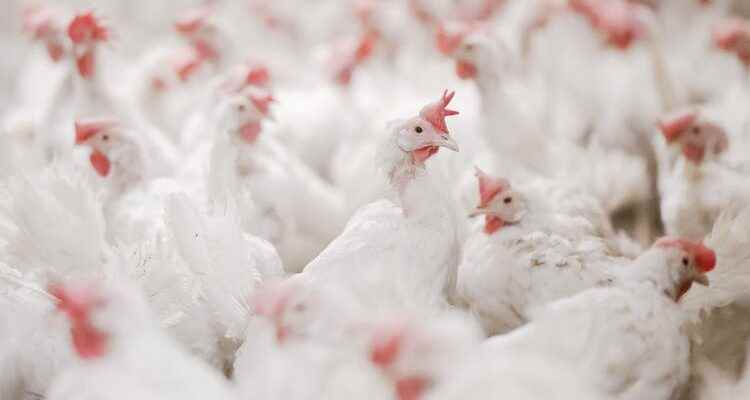The rejected bill was counterproductive and missed the real problem: Anyone who needs to talk about animal husbandry also needs to talk about meat consumption – and there is something else that needs to be talked about: As long as immigration continues, nominal meat consumption will also increase.
The initiative wanted to alleviate the animals’ density stress.
The losers are the winners of hearts. The clear no is a “sympathy no”. Not only the 36 percent who said yes to the factory farming initiative do not want cows, pigs and hens to be kept in large numbers. They too want animals to be cared for and slaughtered with care.
Although it is still denied constitutional status, the “inherent dignity of animals” has finally become a political category as a result of the factory farming initiative. This is remarkable insofar as the “animaux politiques” in the two
Wherever people come into contact with animals, they must be treated with respect. Pets and farm animals must be kept in a species-appropriate manner. There is a consensus on this in this country. It is also clear that the black sheep among the people must be punished. This applies to violations of the strict animal protection laws – but also to the activists who break into production plants without authorization in order to make political profit. Pictures of injured animals work – what more can one say about that?
Exactly this speechlessness is the goal of extreme animal lovers. But the local political system, which thrives on mutual dialogue, relies on language to objectify the world. Here lies the basic problem of this social megatrend, which cannot be stopped: very few in the Yes camp are extremists, but everyone has an affective or at least a highly emotional approach to animals.
It is therefore surprising that the enemies of meat breed sacred cows, but do not want to see the elephant in the room. They have no scruples about bullying farmers and meat producers, but do not dare to talk about the reasons for the high meat consumption: meat consumption in Switzerland is only increasing nominally because the population has been growing massively for years. Per capita it has been falling for some time and is well below consumption in neighboring countries. meat enemies
Animal issues are emotionally driven vehicles for enforcing supposed constraints from completely different political fields. When it comes to food, it’s about its production and trade, it’s about nutrition and of course the climate. But there is also the question of how far the state should intervene in the shopping basket, on the plate and right down to the cholesterol level. Who decides how much meat you can eat: Meret Schneider, Daniel Jositsch, the Federal Office for the Environment, Hildegard von Bingen – or maybe everyone themselves?
From today’s perspective, agriculture and the meat industry are of course perverted if you wish back to the time a hundred years ago, when people in large parts of Switzerland were still self-sufficient and everything from the animal was used. Were the animals better off then? At least not the people.
Today they can choose whether and which meat they want to eat. A rigid organic standard for all companies, as demanded by the initiators, would have caused food costs to rise – and that in times when, in addition to inflation and health insurance premiums, energy prices are now also rising.
In addition, it would have been difficult for the farmers to build new stables or enlarge the existing ones. The spatial planning specifications are too tight today. These have been fenced off by law in recent years by the same groups who are now demanding more space for the animals.
Love for animals also played a role among opponents of the initiative. A Yes on Sunday would have led consumers to Constance or Domodossola instead of to the local butcher.
